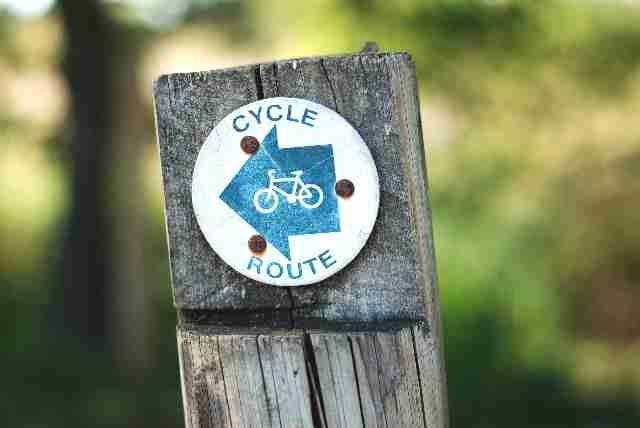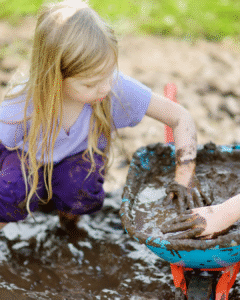
Table of Contents
As parents, it’s our job to make sure we provide our children with a safe and healthy start in life. This includes teaching them about the importance of being environmentally conscious and making ethical choices that have a positive impact on the planet. In this article, we’ll explore some tips for raising environmentally responsible children and how to educate them about the importance of sustainability
Benefits of Eco Friendly Parenting
One of the key benefits of eco friendly parenting is that it teaches children about sustainability and helps them to be more aware of environmental issues. It also instills in them a sense of responsibility for their actions and encourages them to make ethical choices. Additionally, eco friendly parenting can reduce children’s consumption and waste, which can have a positive impact on the environment.

Reducing Consumption
One way to practice eco friendly parenting is by reducing your family’s consumption. This means teaching your children to only buy things they need and to be mindful of the products they purchase, choosing items that can be reused or composted. Encourage your children to reuse and recycle items instead of throwing them away, and teach them to be mindful of their energy consumption by turning off lights and unplugging appliances when they’re not in use and always turn off the faucet while brushing their teeth.
Educating Your Children
Another important aspect of eco friendly parenting is education. Teach your children about climate change, pollution, and resource depletion and the impact these issues have on the environment. Encourage them to get involved in environmental initiatives and support eco friendly organizations that are working to make a difference. There are many ways we can educate our children. Here are a few ideas to get you started.
- Visit a nature preserve or park: Take your children on a hike or nature walk and teach them about the different plants and animals they encounter. You can also visit a local nature center or museum that has exhibits on the environment and sustainability.
- Start a garden: Gardening is a great way to teach children about the natural world and the importance of sustainability. You can start a small vegetable or herb garden and involve your children in the process, from planning and planting to harvesting and cooking.
- Participate in a beach or park cleanup: This is a fun and hands-on way to teach children about the importance of preserving the environment and reducing waste. You can participate in a local beach or park cleanup event, or simply spend an afternoon picking up litter in your own neighborhood.
- Learn about renewable energy: Children are naturally curious and often interested in science and technology. You can teach them about renewable energy sources like solar and wind power by visiting a renewable energy facility or doing online research together.
- Talk about environmental issues: Discuss current environmental issues with your children and encourage them to think about ways that they can make a difference. This can help them to understand the importance of sustainability and the role that they can play in protecting the planet.

Discussions on Environmental Issues
Starting a conversation about environmental issues with your children can be a great way to educate them about the importance of sustainability and the role that they can play in protecting the planet. Here are a few tips for starting the conversation:
Find an issue that interests your child: Children are more likely to engage in a conversation if it is about a topic that interests them. Look for environmental issues that are relevant to your child’s interests and passions. For example, if they love animals, you can discuss the impact of pollution on wildlife.
Use real-world examples: Children often have a better understanding of complex issues when they are presented in a tangible way. Look for examples of environmental issues in the news or in your own community that you can use to illustrate your points.
Make it age-appropriate: It’s important to tailor the conversation to your child’s age and development level. For younger children, you may want to focus on more basic concepts, such as the importance of reducing waste and conserving resources. For older children, you can delve into more complex issues like climate change and environmental justice.
Encourage questions and open discussion: Encourage your children to ask questions and express their thoughts and opinions about the issues you are discussing. This will help to foster their critical thinking skills and encourage them to engage with the material.
Keep it positive: While it’s important to discuss the challenges and problems that we face as a planet, it’s also important to focus on solutions and the progress that is being made. Emphasize the actions that individuals and communities can take to make a difference and help to inspire your children to take action.
Here is a list of ideas that you can start with.
- Climate Change
- Pollution
- Biodiversity
- Natural Resource Depletion
- Environmental Justice
Making Sustainable Choices
Making sustainable choices is also crucial for eco friendly parenting. Teach your children to be mindful of the environmental impact of their actions and encourage them to buy locally sourced and organic products and support companies that are committed to sustainability. Help them to conserve water by taking shorter showers and turning off the tap when brushing their teeth, and encourage the use of reusable items like water bottles and tote bags instead of single-use plastic.
Being an Example
As a parent, it’s important to set a good example for your children. Practice what you preach by making sustainable choices yourself and demonstrating the importance of environmental responsibility. Finally, get involved in your community and advocate for environmental causes to help create a brighter, more sustainable future for all.
Check out 5 easy swaps you can do today to help the environment!
Also, take a look at this blog.



